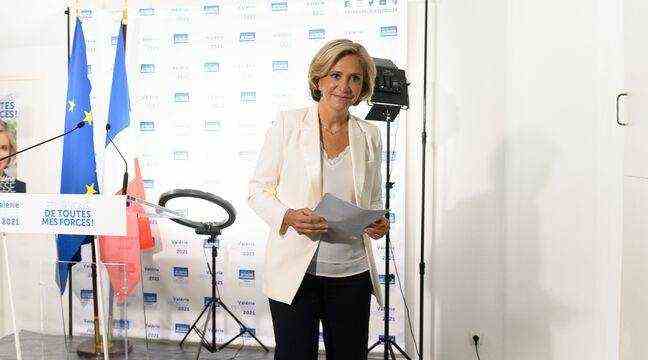Sea serpent in sight. As each presidential election draws near, the subject inevitably comes up in public debate. The last right-wing figure to have embarked on the race for 2022, Valérie Pécresse has taken up a proposal dear to her political camp.
When traveling in the Alpes-Maritimes in the middle of the week, the candidate said she was in favor of the establishment of immigration quotas.
Already proposed by François Fillon in 2017 and by Nicolas Sarkozy before him, then considered by the current head of state in 2019, this measure has never succeeded. Why ? And what effects could such a reform have? 20 minutes make the point.
What does Valérie Pécresse offer?
Faced with the press on Wednesday July 28, Valérie Pécresse judged “the very important integration problems” in France. “If we want to remain a land of asylum, that means immigration choices and quotas voted each year by Parliament,” she explained. Last week,
during an interview with Figaro, the president of the Ile-de-France region had already spoken in favor of such a measure. “Uncontrolled immigration without integration can disrupt a society. Let us introduce quotas voted each year by Parliament, ”she declared.
Travel in the Alpes Maritimes of @vpecresse on the theme of#immigration, at the border post of Menton, in the presence of@ECiotti and D’@ EricPAUGET1 .
The exchanges with the police show the urgency to make our laws finally effective. #PecressePresidente pic.twitter.com/jf17AON7i5– Florence Portelli (@FloPortelli) July 28, 2021
However, the right-wing candidate did not detail her proposal. Should these quotas be established by region and nationality, as François Fillon proposed in 2017? Would they apply to all categories of immigration – policies with the right to asylum? Family? – or only to economic migrations? For the time being, no details have been provided by Valérie Pécresse.
Why was this measure never implemented?
If quotas applied to all categories of immigration, the introduction of such a measure would be particularly complex, since it would require a revision of our Constitution. Indeed, the family and humanitarian reasons for legal immigration are based on fundamental rights and constitutional principles such as the right of asylum or the right to live with the family.
In September 2007, the Minister of Immigration, Brice Hortefeux, had already broken his teeth on this constitutional brake. In front of the deputies, this close to Nicolas Sarkozy detailed: “The government plans to open a reflection on a constitutional amendment (…) It would be a question of the definition of quantified immigration ceilings, of a normative nature, in order to to achieve a global control of immigration and to achieve a balance between the economic and family components, as well as between the large regions of origin. “
A commission, chaired by Pierre Mazeaud, was seized in 2008 to study the feasibility of such a device. In his report, the lawyer and former president of the Constitutional Council estimated that these quotas would be “incompatible with our constitutional principles and our European and international commitments”. “On the political level, finally, a draft revision of the Constitution, on such a sensitive subject, would deeply and needlessly divide French society”, added this commission.
More than ten years later, Emmanuel Macron nevertheless put the subject back on the table at the end of the “yellow vests” crisis. Hitherto hostile to this measure, the President of the Republic had outlined the idea in his letter to the French sent in January 2019. Without mentioning the term quotas, the Head of State proposed to establish “annual objectives” migration, set each year by Parliament. A few months later, the government finally opted for the establishment of quotas for professional immigration only. The principle, far from being new, must respond to the recruitment difficulties encountered in certain specific sectors by bringing in foreign labor.
What can that change?
Not much, actually. In 2008, the Mazeaud commission report judged these quotas “of no real utility in terms of labor immigration” and “ineffective against irregular immigration (…) The posting of a quota could even have, paradoxically, an effect. incentive. “. An analysis shared by Patrick Weil, historian specializing in migration and research director at the CNRS. “The quota is an incentive for illegal immigration. When a person makes an individual decision to migrate, a country’s stating of a pre-proclaimed number can be an incentive to go there. This is what happened in the United States He points out.
A risk of “inhalation” also raised by Angéline Escafré-Dublet, lecturer in political science at the University of Lyon 2 and specialist in immigration issues in France and the United States. “There are already very restrictive criteria for entering French soil. This is a political formula on the part of Valérie Pécresse, which aims to put forward a more restrictive term from a language point of view. But in reality, immigration selections already exist, ”she concludes.

